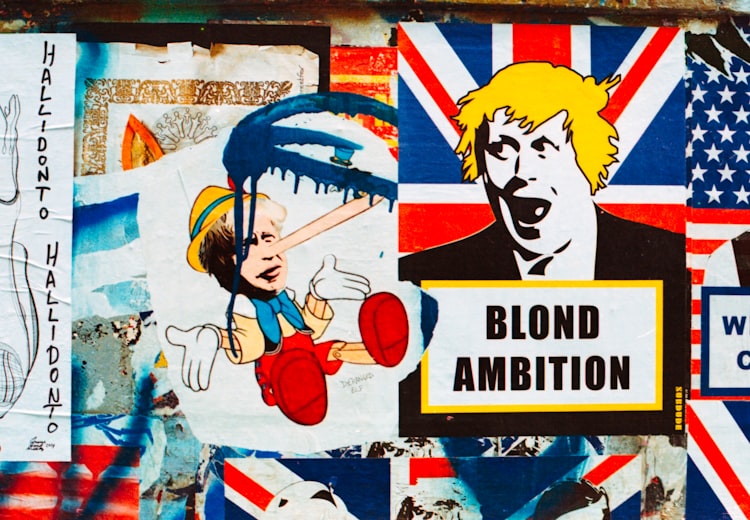Commonplace books

"The impulse to write things down is a peculiarly compulsive one, inexplicable to those who do not share it, useful only accidentally, only secondarily, in the way that any compulsion tries to justify itself." - Joan Didion
Hello, grownups!
As a teenager, I had this Harry Potter-branded notebook that I collected quotes in. I was paging through it this morning and it's an adorable window into the things teen Sam found deep, including:
- Passages from 1984 and Animal Farm by George Orwell - because you know, like, all politicians are liars, man
- Poems by ee cummings, Sylvia Plath and William Carlos Williams
- Song lyrics from Rob Zombie, Bob Dylan, Radiohead, Patti Smith, but also more than one song from *mumbles* the Dave Matthews Band *mumbles*
- Out-of-context quotes by Mandela, Gandhi, the Dalai Lama, and Winnie the Pooh
- Elvish Tolkien songs written out in Tengwar script, and no, I did not have a boyfriend, how did you guess?
- FOUR PAGES devoted to M. Z. Bradley's The Mists of Avalon
- So. Much. Nietzche.
- Jokes from Absolutely Fabulous next to passages from The Rubaiyat of Omar Khayyam
- An honestly obscene number of quotes from the 2001 Baz Luhrmann movie, Moulin Rouge
There's a term for this kind of project: it's a commonplace book. A commonplace book is like a scrapbook for ideas; a compilation of quotes, factoids, drawings or insights you find interesting. Usually, there's some way of indexing the topics inside, or organising around themes (like maintaining different notebooks for different themes). They're more like a personal database than like a diary. They might include personal musings on a topic, but usually in some kind of structured or organised way, and often in response to information collected from other texts.

Essentially, a commonplace book is a compilation of things you find interesting. Think of it as your personal "greatest hits" playlist of ideas.
Most of us keep commonplace books of some type. Family recipe books, for instance. Lists of movies you want to see, or notes on skills you've learned.
Famous thinkers who kept commonplace books include Mark Twain, C. S. Lewis, W. H. Auden, Virgina Woolf, and Ronald Raegan. Marcus Aurelius's Meditations stared as a commonplace book. John Locke even wrote a whole book about making commonplace books. Meta!

Let us take down one of those old notebooks which we have all, at one time or another, had a passion for beginning. . . . Here we have written down the names of great writers in their order of merit; here we have copied out fine passages from the classics; here are lists of books to be read; and here, most interesting of all, lists of books that have actually been read, as the reader testifies with some youthful vanity by a dash of red ink. (Virginia Woolf, “Hours in a Library”)
People have made commonplace books for as long as we've made books. In Medieval Europe, they were sometimes called the florilegium (Latin for "a gathering of flowers" - how lovely). Thomas of Ireland wrote a famous one called the Manipulus Florumi, which contained over 6,000 extracts from books in the library of the Sorbonne in Paris, organised by theme. Imagine how powerful that would have been in a time when a single book was worth more than most people's homes! Over 200 hand-copies of it were made, mostly used by clergy looking for quotes relating to subjects they wanted to preach about in their sermons.
Commonplacing was formally taught at universities in the 17th century, and all undergrads were required to keep them. But it was a practice that was even more important for people locked out of formal universities, like women, who would record their reading, thoughts and ideas - and then crucially, share them. That's another of the major differences between commonplace books and diaries: diaries are usually personal, while commonplace books occupy a space somewhere between the private and the public.
You're saying something to the world about who you are, in the ideas you choose to collect. Dr Juliet Shields makes the argument that commonplace books were like an early form of social media, allowing people to "construct their identities through bricolage or selective appropriation, like highly evolved magpies".
And indeed, many of us use social media as a form of commonplacing today, collecting and commenting on the articles and videos we find most compelling, and saying something about ourselves in what we choose to highlight. But I believe there's a lot of value in maintaining more organised and private commonplace books too (whether digital or analogue), where we can develop our personal libraries of ideas that can help us in doing the work we choose to do, and living the kind of lives we value.
Obviously, the most obvious benefit of some kind of commonplace book is that can help you find stuff later. As John Locke said: "it would be of little purpose to spend our time in reading of books, if we could not apply what we read to our use... It is an old saying, that that is the truest poverty, when if you have an occasion for any thing, you can't use it, because you know not where 'tis laid." And anyone who's ever spent thirty minutes trying to Google some obscure blog post they read several months ago knows how frustrating it is to mislay something in the bloody internet.


When Thomas of Ireland wrote the Manipulus Florumi, it was valuable because books were so expensive. Now, commonplace books matter because information is so damn cheap. There are more blogs/podcasts/books/videos/articles than you could get through in a thousand lifetimes, and you consume many more of them each day than you're able to really absorb. So finding the gems matters so much more. This is why I like physical commonplace books, even though they're obviously inferior in many ways (e.g. a lack of search): the act of copying something out by hand slows down my thinking and forces me to think more deeply about it. Writing something out also means I'm more likely to remember it.

For me, one of the greatest delights of a commonplace book is how it can reveal your own interests to you. To be useful, a commonplace book needs a layer of organisation. This might involve #tags, folders, colour-coding, an index of keywords, separate books, whatever. Over time, it can be fascinating to discover the topics you keep returning to, the questions that draw you back throughout your life, the sections of your own personal Dewy Decimal System, the rooms inside your mind palace. The only thing that has to connect the stuff you collect is that you find it interesting.
So much creativity comes from the collision of our interests. Steve Jobs credits a random calligraphy course as having been essential to the success of the first Macintosh computer. The constellation of your quirks is who you are, and it can be the source of the unique contributions you can make to the world. Creating a commonplace book helps you to see what they are.
John Milton's commonplace books were organised into three sections: ethics, economics and politics, but yours probably won't be. Maybe yours are German reggae, artificial intelligence, pugs, and facts about the movie Moulin Rouge, but I BET there's some unique wisdom to be contributed to the world in the intersection of those things.
Starting your own commonplace book
You probably have a personal database of some kind already, whether it's a folder of PDFs on your laptop, a pile of notebooks, a Whatsapp chat history where you send a friend interesting links, or a notes app on your phone. What small changes could you make to allow your system work harder for you?
- Maybe it's more deliberately collecting your notes into a central place? For instance, I use Bear as my main digital commonplace book (I like its simple tag-based organisation method rather than folders), and it has a great web clipper that allows me to add web pages at a click.
- Maybe it's rediscovering the joys of physical notebooks, by starting a family recipe book or a handwritten book of quotes/inspiration?
- Maybe it's building a routine around reviewing, re-reading, and purging your notes?
- Maybe it's taking more time to add your own comments and thoughts to what you collect?
- Maybe it's getting better at tagging, colour-coding, indexing or otherwise organising your notes? Productivity types like Ali Abdaal and Sam Davies both swear by an app called Notion, if you like a very ORGANISED tool. Ryan Holiday has a very impressive-looking notecard system if analogue's more your jam.
- Maybe it's publishing more of your commonplace book? For instance, Bill Gates keeps a blog where he writes short reflections on the books he reads.

Whoever you are, figuring out how to wrangle the thoughts in your own delightfully weird brain is one of the most important tasks of your lifetime.
"Look, my commonplace book is easily justified. I write and speak about things for a living. I need this resource. But so do you. You write papers, memos, emails, notes to friends, birthday cards, give advice, have conversations at dinner, console loved ones, tell someone special how you feel about them. All these are opportunities to use the wisdom you have come across and recorded–to improve what you’re doing with knowledge passed down through history." - Ryan Holiday, who has a great blog post about how and why to keep a commonplace book
And just remember, friends, as teenage Sam apparently thought was SO DAMN DEEP: the greatest thing you'll ever learn is just to love and be loved in return. 🤮
xx
S
Updates from Sam-Land
- English summer continues to be glorious. I've been working on a script for a TV show pilot, writing some children's stories for Cambridge University Press, and about to go into another round of edits on Magpies (the novel I wrote with Dale Halvorsen), but I'm also just trying to spend as much time outside as possible, and living in DEEP DENIAL about the fact that summer will ever end.
- Please drop what you're doing and watch the hilarious, delightful show We Are Lady Parts about a female Muslim punk band in London.
- Some books I've enjoyed recently: Madness: Stories of Uncertainty and Hope by Sean Baumann (powerful reflections on schizophrenia by a psychiatrist who worked at Valkeberg Hospital for 25 years). The Echo Wife by Sarah Gailey (a woman's ex-husband makes a subservient clone version of her - trouble ensues). The Knife of Never Letting Go by Patrick Ness (sci-fi coming-of-age story about a boy who grew up in a town of only men). Open Borders: the Science and Ethics of Immigration by Bryan Caplan (an economist's argument for unrestricted immigration, in comic book form). Mermaid Fillet by Mia Arderne (an explosive Cape Town noir unlike anything I've ever read).






Member discussion